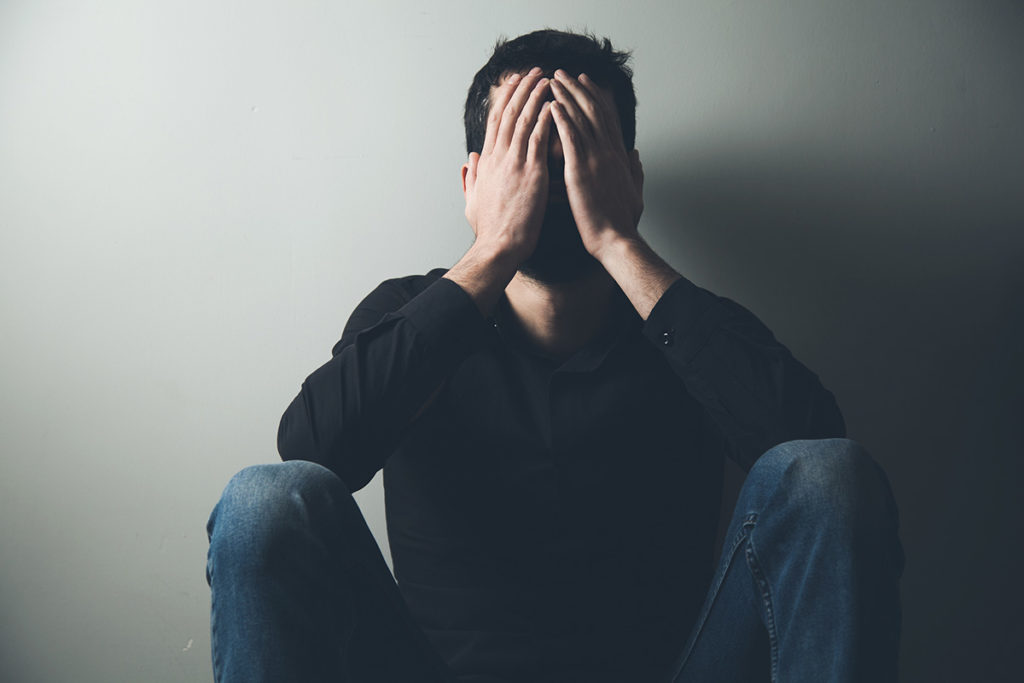Depression is among the nation’s most common mental illnesses. It is a widespread and serious condition that, in many instances, requires medical treatment — either counseling, medication, or both. Depression can also exist concurrently with substance abuse disorders, requiring an even more comprehensive form of treatment. But what are the signs of depression?
The signs of depression go far beyond a feeling of sadness and may not be tied to a specific event — such as the grief you feel after the passing of a loved one. Depression disrupts your ability to live a happy life and impedes successful relationships. Being attentive to the signs of depression can help you avoid complications such as substance abuse and speed the treatment you may need.
What is Depression?
Everyone feels sad from time to time. But when that sadness becomes all-encompassing and leads a person to withdraw from the things that he or she would typically enjoy, sadness graduates into clinical depression.
And depression is more than a feeling of sadness. It has been described at various times as a feeling of darkness, of carrying a weight on one’s shoulders. Depression isn’t an occasional thing, either — symptoms usually last for two weeks or longer.
According to the American Psychiatric Association, about 7 percent of adults are diagnosed with depression in a year, while more than 16 percent say they have experienced depression sometime in their lifetimes.
Signs of Depression
Certainly, a sense of sadness is part of depression. But the signs of depression typically trigger changes in how you live. The symptoms can have a range of severity and include:
- Losing interest in things you used to love to do
- Losing weight, gaining weight
- Sleep disruptions
- Exhaustion or fatigue
- Feeling worthlessness, hopelessness, guilt
- Thoughts of death or suicide
It’s important not to self-diagnose (or to self-medicate, for that matter.) These symptoms could be signs of other physical conditions. Make sure you seek a complete physical exam to get to the bottom of your symptoms.
Treating the Signs of Depression
Getting treatment for the signs of depression is very important, for many reasons. First, depression makes it hard to enjoy life the way you want to. Not only that, but depression and other mental health conditions frequently occur simultaneously with substance abuse.
These are what are called “dual-diagnosis” or “co-occurring” disorders. People with dual-diagnosis disorders generally require a different approach to treatment – a combination of detox and counseling, addressed consecutively.
The main way of addressing depression is through counseling with a psychotherapist or social worker. The goal of therapy is to help you identify the underlying drivers of your depression and guide you toward developing good coping skills and changing behaviors. Therapy usually lasts a short time; however, every case is different. Sessions center on specific goals. According to the Centers for Disease Control, these goals can include:
- Addressing fears, guilt, insecurities
- Reducing stress
- Stopping drug and alcohol use
- Understanding past events
- Improving relationships
A second approach involves the use of medication. Doctors often choose Prozac, Paxil, and other forms of selective serotonin reuptake inhibitors (SSRIs) for individuals showing signs of depression. Other types of medications have also proven effective.
Long-term health care professionals say, a combination of medication and counseling typically leads to the best outcomes.
Out of the Darkness
Feeling depressed from time to time is normal. But feeling darkness and gloom could be one of the signs of depression. It could also mean an increased risk of substance abuse. If you find yourself struggling with drugs or alcohol, consider getting help from Right Step Houston. We provide a full range of treatment programs and counseling to help put you on a path to sobriety. Our programs include medical drug detox programs, inpatient drug rehab centers, alcohol addiction treatment, important aftercare programs. Call us today for a confidential consultation at 1.844.768.0169.

